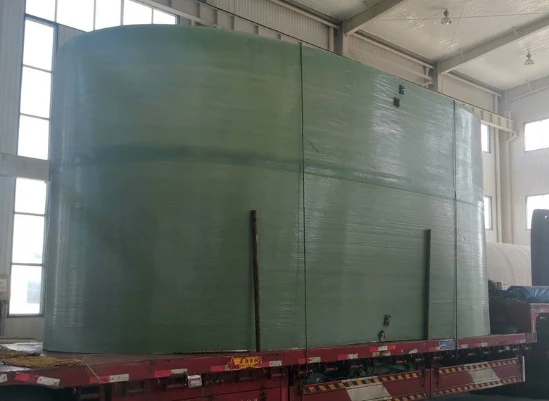
-
 Afrikaans
Afrikaans -
 Albanian
Albanian -
 Amharic
Amharic -
 Arabic
Arabic -
 Armenian
Armenian -
 Azerbaijani
Azerbaijani -
 Basque
Basque -
 Belarusian
Belarusian -
 Bengali
Bengali -
 Bosnian
Bosnian -
 Bulgarian
Bulgarian -
 Catalan
Catalan -
 Cebuano
Cebuano -
 China
China -
 China (Taiwan)
China (Taiwan) -
 Corsican
Corsican -
 Croatian
Croatian -
 Czech
Czech -
 Danish
Danish -
 Dutch
Dutch -
 English
English -
 Esperanto
Esperanto -
 Estonian
Estonian -
 Finnish
Finnish -
 French
French -
 Frisian
Frisian -
 Galician
Galician -
 Georgian
Georgian -
 German
German -
 Greek
Greek -
 Gujarati
Gujarati -
 Haitian Creole
Haitian Creole -
 hausa
hausa -
 hawaiian
hawaiian -
 Hebrew
Hebrew -
 Hindi
Hindi -
 Miao
Miao -
 Hungarian
Hungarian -
 Icelandic
Icelandic -
 igbo
igbo -
 Indonesian
Indonesian -
 irish
irish -
 Italian
Italian -
 Japanese
Japanese -
 Javanese
Javanese -
 Kannada
Kannada -
 kazakh
kazakh -
 Khmer
Khmer -
 Rwandese
Rwandese -
 Korean
Korean -
 Kurdish
Kurdish -
 Kyrgyz
Kyrgyz -
 Lao
Lao -
 Latin
Latin -
 Latvian
Latvian -
 Lithuanian
Lithuanian -
 Luxembourgish
Luxembourgish -
 Macedonian
Macedonian -
 Malgashi
Malgashi -
 Malay
Malay -
 Malayalam
Malayalam -
 Maltese
Maltese -
 Maori
Maori -
 Marathi
Marathi -
 Mongolian
Mongolian -
 Myanmar
Myanmar -
 Nepali
Nepali -
 Norwegian
Norwegian -
 Norwegian
Norwegian -
 Occitan
Occitan -
 Pashto
Pashto -
 Persian
Persian -
 Polish
Polish -
 Portuguese
Portuguese -
 Punjabi
Punjabi -
 Romanian
Romanian -
 Russian
Russian -
 Samoan
Samoan -
 Scottish Gaelic
Scottish Gaelic -
 Serbian
Serbian -
 Sesotho
Sesotho -
 Shona
Shona -
 Sindhi
Sindhi -
 Sinhala
Sinhala -
 Slovak
Slovak -
 Slovenian
Slovenian -
 Somali
Somali -
 Spanish
Spanish -
 Sundanese
Sundanese -
 Swahili
Swahili -
 Swedish
Swedish -
 Tagalog
Tagalog -
 Tajik
Tajik -
 Tamil
Tamil -
 Tatar
Tatar -
 Telugu
Telugu -
 Thai
Thai -
 Turkish
Turkish -
 Turkmen
Turkmen -
 Ukrainian
Ukrainian -
 Urdu
Urdu -
 Uighur
Uighur -
 Uzbek
Uzbek -
 Vietnamese
Vietnamese -
 Welsh
Welsh -
 Bantu
Bantu -
 Yiddish
Yiddish -
 Yoruba
Yoruba -
 Zulu
Zulu
Jan . 09, 2025 13:50
Back to list
Insulation Tanks
The realm of FRP (Fiber Reinforced Polymer) customized products has witnessed a significant evolution, driven by an increasing demand for durable, lightweight, and versatile materials across various industries. As an expert in the field of advanced composite materials, I've had the privilege of witnessing firsthand how these products have transformed industrial applications, ranging from construction to automotive engineering.
The academic and practical understanding required to develop and implement these composite solutions is vast, drawing on fields such as material science, engineering, and design. The process requires precision, innovative techniques, and a thorough understanding of both the benefits and limitations of composite materials. This specialized knowledge underscores the authority and trustworthiness essential to creating effective FRP customized products. Organizations that invest in FRP solutions often experience a remarkable return on investment. Considering factors such as longevity, reduced maintenance costs, and performance improvements, the reliability of FRP products assures stakeholders of their value. The industry's shift toward sustainable practices further highlights the trustworthiness of these materials, as they contribute to greener, more energy-efficient solutions without sacrificing quality or integrity. In conclusion, the development and application of FRP customized products encapsulate a blend of experience, expertise, authority, and trustworthiness. As industries continue to seek innovative materials that offer durable and cost-effective alternatives, FRP products stand out as a testament to the advancements in material science and engineering. Their versatility and performance continue to redefine possibilities across sectors, making them an indispensable component of modern industrial applications.


The academic and practical understanding required to develop and implement these composite solutions is vast, drawing on fields such as material science, engineering, and design. The process requires precision, innovative techniques, and a thorough understanding of both the benefits and limitations of composite materials. This specialized knowledge underscores the authority and trustworthiness essential to creating effective FRP customized products. Organizations that invest in FRP solutions often experience a remarkable return on investment. Considering factors such as longevity, reduced maintenance costs, and performance improvements, the reliability of FRP products assures stakeholders of their value. The industry's shift toward sustainable practices further highlights the trustworthiness of these materials, as they contribute to greener, more energy-efficient solutions without sacrificing quality or integrity. In conclusion, the development and application of FRP customized products encapsulate a blend of experience, expertise, authority, and trustworthiness. As industries continue to seek innovative materials that offer durable and cost-effective alternatives, FRP products stand out as a testament to the advancements in material science and engineering. Their versatility and performance continue to redefine possibilities across sectors, making them an indispensable component of modern industrial applications.
Related Products









